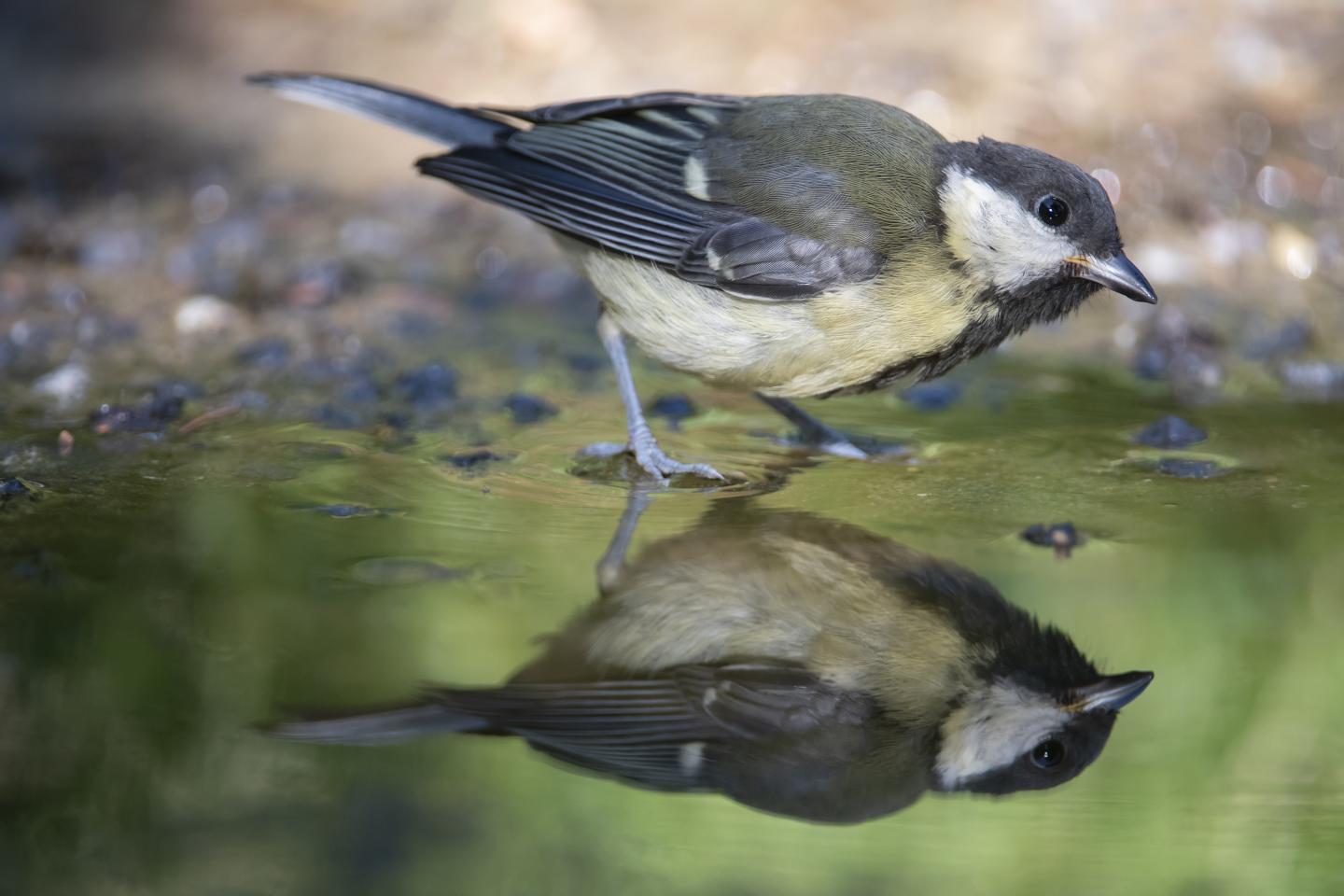
Credit: Bernard Castelein
Climate change can threaten species and extinctions can impact ecosystem health. It is therefore of vital importance to assess to which degree animals can respond to changing environmental conditions – for example by shifting the timing of breeding – and whether these shifts enable the persistence of populations in the long run. To answer these questions an international team of 64 researchers led by Viktoriia Radchuk, Alexandre Courtiol and Stephanie Kramer-Schadt from the Leibniz Institute for Zoo and Wildlife Research (Leibniz-IZW) evaluated more than 10,000 published scientific studies. The results of their analysis are worrisome: Although animals do commonly respond to climate change, such responses are in general insufficient to cope with the rapid pace of rising temperatures and sometimes go in wrong directions. The results are published in the scientific journal “Nature Communications“.
In wildlife, the most commonly observed response to climate change is an alteration in the timing of biological events such as hibernation, reproduction or migration (phenological traits). Changes in body size, body mass or other morphological traits have also been associated with climate change, but – as confirmed by this study – show no systematic pattern. The researchers extracted relevant information from the scientific literature to relate changes in climate over the years to possible changes in phenological and morphological traits. Next, they evaluated whether observed trait changes were associated with higher survival or an increased number of offspring. “Our research focused on birds because complete data on other groups were scarce”, says lead author Viktoriia Radchuk (Leibniz-IZW). She adds: “We demonstrate that in temperate regions, the rising temperatures are associated with the shift of the timing of biological events to earlier dates.”
Co-author Steven Beissinger (Professor at the University of California in Berkeley) says “This suggests that species could stay in their warming habitat, as long as they change fast enough to cope with climate change.” However, senior author Alexandre Courtiol (Leibniz-IZW) adds “This is unlikely to be the case because even populations undergoing adaptive change do so at a pace that does not guarantee their persistence”. Co-author Thomas Reed (senior lecturer at University College Cork, Ireland) explains “These results were obtained by comparing the observed response to climate change with the one expected if a population would be able to adjust their traits so to track the climate change perfectly”.
Even more worrisome is the fact that the data analysed included predominantly common and abundant species such as the great tit (Parus major), the European pied flycatcher (Ficedula hypoleuca) or the common magpie (Pica pica) which are known to cope with climate change relatively well. “Adaptive responses among rare or endangered species remain to be analysed. We fear that the forecasts of population persistence for such species of conservation concern will be even more pessimistic” concludes Stephanie Kramer-Schadt (Head of the Department of Ecological Dynamics, Leibniz-IZW). The scientists hope that their analysis and the assembled datasets will stimulate research on the resilience of animal populations in the face of global change and contribute to a better predictive framework to assist future conservation management actions.
###
Publication
Radchuk V et. al (2019:) Adaptive responses of animals to climate change are most likely insufficient. Nature Communications doi:10.1038/s41467-019-10924-4
Contact
Dr. Viktoriia Radchuk
Scientist in the Department of Ecological Dynamics
Leibniz Institute for Zoo and Wildlife Research (Leibniz-IZW) in the Forschungsverbund Berlin e.V.
Alfred-Kowalke-Straße 17, 10315 Berlin
Phone: +49 (0)30 5168454
Email: [email protected]
Dr. Alexandre Courtiol
Scientist in the Department of Evolutionary Genetics
Leibniz Institute for Zoo and Wildlife Research (Leibniz-IZW) in the Forschungsverbund Berlin e.V.
Alfred-Kowalke-Straße 17, 10315 Berlin
Phone: +49 (0)30 5168331
Email: [email protected]
Prof. Dr. Stephanie Kramer-Schadt
Head of the Department of Ecological Dynamics
Leibniz Institute for Zoo and Wildlife Research (Leibniz-IZW) in the Forschungsverbund Berlin e.V.
Alfred-Kowalke-Straße 17, 10315 Berlin
Phone: +49 (0)30 5168714
Email: [email protected]
Steven Seet
Science Communication
Leibniz Institute for Zoo and Wildlife Research (Leibniz-IZW) in the Forschungsverbund Berlin e.V.
Alfred-Kowalke-Straße 17
10315 Berlin
Phone: +49 (0)30 5168125
Cell: +49 (0)177 8572673
Email: [email protected]
Media Contact
Steven Seet
[email protected]
Related Journal Article
http://dx.




